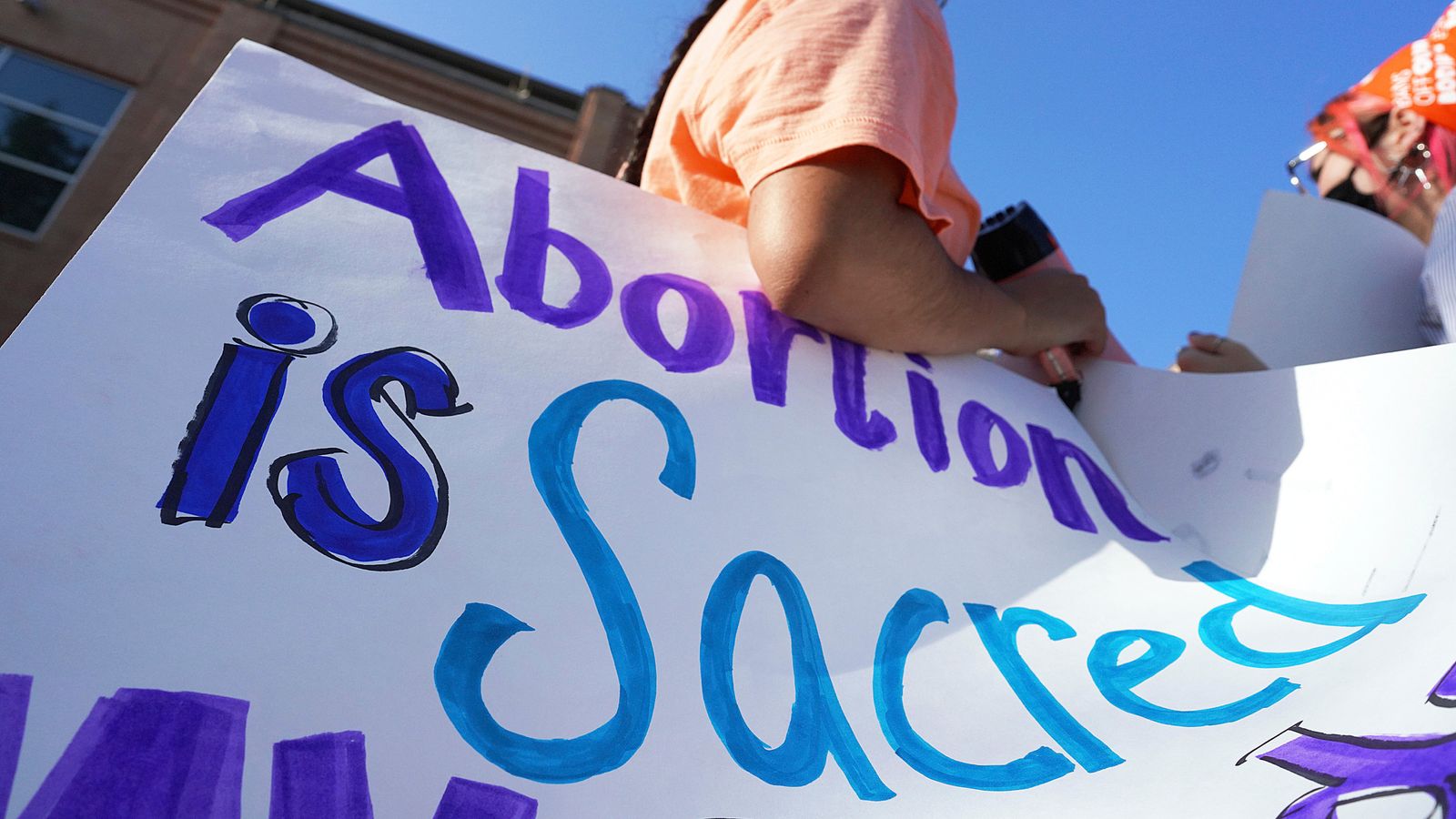The US Justice Department is suing Texas in an attempt to block its new law banning most abortions, arguing the state’s legislature enacted it “in open defiance of the constitution”.
The lawsuit comes after the Supreme Court last week refused to block the legislation, which prohibits nearly all abortions after six weeks of pregnancy, from taking effect.
The court judges narrowly voted 5-4 to allow it, prompting President Joe Biden to attack the ruling as an “insult” to the rule of law.
And now his attorney general, Merrick Garland, has announced legal action against Texas.
The civil lawsuit, filed in federal court in the state, asks a federal judge to declare the abortion law, known as SB8 (Senate Bill 8), is invalid “to protect the rights that Texas has violated”.
Speaking at a news conference, Mr Garland said: “The act is clearly unconstitutional under long-standing Supreme Court precedent.”
The Justice Department argues SB8 unlawfully infringes on the constitutional rights of women and violates the supremacy clause of the constitution, which says federal law supersedes state law.
With Texas banning most abortions, nearby states prepare for women to go long distances for help
US Supreme Court refuses to block new six-week Texas abortion ban in 5-4 vote
UK government tells Northern Ireland to commission full abortion services
SB8, signed into law in May by Republican Governor Greg Abbott, bans abortions after the detection of a foetal heartbeat, which usually occurs around the sixth week of pregnancy.
By that time, many women still do not know they are pregnant.
The heartbeat bill is now LAW in the Lone Star State.
This bill ensures the life of every unborn child with a heartbeat will be saved from the ravages of abortion.
Thank you @SenBryanHughes, @ShelbySlawson, & #txlege for fighting for the lives of the unborn in Texas. pic.twitter.com/aolhUKM9tv
Rather than placing public officials or law enforcement in charge of enforcing the ban, the law empowers private citizens to file civil lawsuits against abortion providers or anyone who “aids or abets” in an abortion after the six-week threshold.
Family members, rape crisis counsellors and other medical professionals could be open to lawsuits, according to legal experts and physicians who opposed the measure.
People who sued would be awarded at least $10,000, as well as the costs of lawyers’ fees, if they won.
Be in no doubt, it’s hugely significant, unusual and complex for the federal government to file a lawsuit against a state in this way. But then the law it is trying to tackle is itself hugely significant, unusual and complex.
This is only the second time the US Justice Department has sued a state over a law passed by a Republican local legislature – the first was in June when it sued Georgia over a new voting rights bill.
The suit will not have an easy ride. First and foremost because the piece of legislation it’s targeting was specifically designed to evade legal challenge, that’s the very basis of its success. By relying on individual citizens to enforce it by suing other citizens, the law has become uniquely hard to block or challenge. Even the Supreme Court declined to rule on it.
But it will be a tough ride for other reasons too. The Federal Government will have to show that some injury has been done to it and the court route through which it must now pass is in itself a conservative one.
The Attorney General and others have been at pains to stress the fact this law violates the constitutional rights of women in Texas (after all, abortion is still legal in the United States of America). In this they’re attempting to remove some of the politics from the debate. What’s to stop any State, they would argue, from bringing any law of this design to challenge any other constitutional right – gun ownership for example?
It’s unclear if this will work, but it is clear the administration felt it had to try. With other Republican lead states already indicating they’re working on copy-cat laws and another major challenge to abortion rights due to be heard in the Supreme Court this autumn, it will no doubt be a hot and controversial issue throughout the coming months.
Critics say the rules effectively establish a bounty system in order to sidestep women’s abortion rights enshrined in the landmark 1973 Supreme Court case Roe v Wade.
Federal officials are also concerned other states could enact similar laws that would “deprive their citizens of their constitutional rights,” Mr Garland said.
He added: “This kind of scheme to nullify the constitution of the United States is one that all Americans, whatever their politics or party, should fear.
“If it prevails, it may become a model for action in other areas, by other states and with respect to other constitutional rights and judicial precedents.”






















